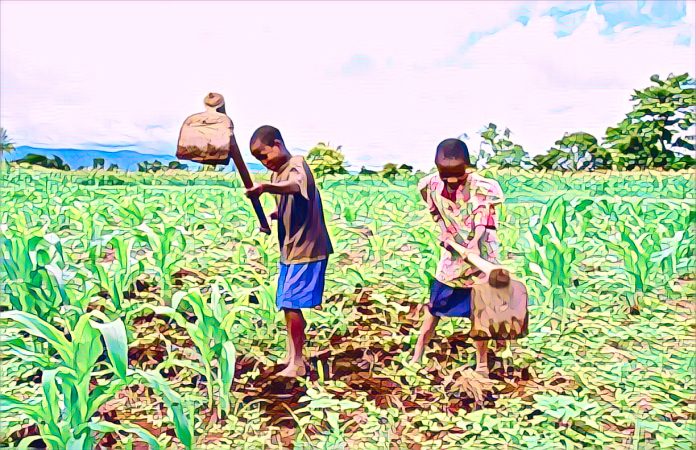KEY POINTS
- In West Africa, child labour in agriculture erodes education and human rights.
- The ECOWAS Regional Action Plan (2022–2030) seeks to eliminate child labour and forced labour.
- Efforts to curb the issue at its root require collaborative effort, and local monitoring committees.
The Federal Government has proclaimed child labour in the agricultural sector in West Africa a major concern whose adverse effects are education, health and human rights.
During the first ECOWAS Child Labour Experts Annual Review Meeting in Abuja, Nigeria’s Minister of State for Labour and Employment, Nkeiruka Onyejeocha, said it was important that the nation develops synergies with its neighbours to deal with the problem urgently.
” Children working long hours under hazardous conditions are deprived of his or her right to education, health, childhood without exploitation,” Onyejeocha said, adding that poverty, limited access to education and weak enforcement of labor laws are some of the multifaceted factors contributing to child labor.
Tackling child labour as a team
The Nigerian government has taken steps such as ratification of key International Labour Organization (ILO) conventions, and established mechanisms to fight against child labour and forced labour, Onyejeocha said.
She praised ECOWAS and ILO Action Against Child Labour in Agriculture in West Africa (ACLAWA) project for bringing the meeting together, saying it was a demonstration of regional teamwork.
The ILO Country Office for Nigeria and ECOWAS Director, Vanessa Phala said that child labour is a global problem but in Sub-Saharan Africa it bears an unacceptable burden with the continent contributing 160 million of the estimated 200 million children out of school globally.
In the United States Congress, she emphasized the vital role Community Child Labour Monitoring Committees can play in arming local leaders with the tools not only to identify, but to eliminate child labour at its source.
ECOWAS regional action plan, a framework for change
Representing the ECOWAS Commission, Dr. Alieu Omar Touray described the Regional Action Plan on the Elimination of Child Labour and Forced Labour (2022–2030) as a key instrument in the fight to eradicate child labour.
He urged member states to go ahead with the plan, however challenging resources, and make their policymaking integrated and resource efficient.
Children in labour make up a large proportion of working children, especially in West and Central Africa, where 30% of children work an average of 18 hours a week. This is unacceptable, and we must all work together to remedy it,” Touray said.



